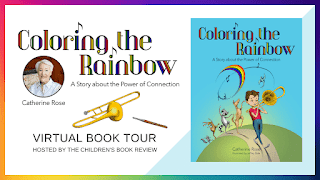The Good Son by Jacquelyn Mitchard
Happy New Year's Eve!
If you are a fan of Jodi Picoult as I am, I have the next great read for you. Imagine your son is convicted of killing his girlfriend, even though he does not remember it. When he’s released from prison after only a few years you want to help him move on. However society and even their own family does not think justice was served. I’m bringing you this book before the January 18th publication date courtesy of the publisher. I hope you enjoy hearing my thoughts of the book and a Q&A with Jacquelyn Mitchard.
Review
Q&A
Q: What is your elevator pitch for the book?
A: When Thea’s college-age son is released from prison after serving time for killing his girlfriend, Thea must battle not only a community that hates him, but also her son’s despair.
And then, she soon learns that the night of the girlfriend’s death is much more mysterious, and much more shocking, than she could ever have imagined.
Q: What inspired the book?
A: Years before I ever wrote this story, I was in a coffee line at a big hotel where I was speaking at a writer’s conference. The woman in front of me dropped her book; I picked it up and asked if she was attending the conference. No, she said. She told me stayed at this hotel every weekend to visit her son, who was in prison and would be in prison for at least twenty more years. He was just nineteen years old. Oh no, I thought, oh no, don’t tell me why … but she did: Her son had murdered the only girl he ever loved, while so strung out on drugs that he didn’t even remember the death. She went on to say that one day, she was in their hometown cemetery bringing roses to the girl’s grave, when the girl’s mother appeared. The boy’s mother was terrified: What would happen? Would the woman shout at her, hit her? Instead, the two, who’d once been good friends, fell sobbing into each other’s arms. The mother of the lost girl then said the most heart-wrenching thing. “At least,” she told the boy’s mother, “You can still touch him.” When my agent heard the story, he said that it was impossible for me to make those characters sympathetic – but he now admits he was wrong.
Q: Who is your favorite character in the book?
A: It’s Stefan, the boy who went to prison for murder. It was very hard to write about someone convicted of murder but he also was so filled with grief and remorse and, at 20, had no way to imagine any future at all.
Q: Which character was the hardest to write? Easiest?
A: It was honestly hardest to create the main character, Thea, because to be effective at making a character come to life, you have to let yourself inhabit her emotions as fully as is possible – and I really didn’t want to imagine standing in her shoes. I once saw a speech by Sue Klebold, the mother of Dylan Klebold, one of the Columbine shooters. She said, of course, she still loved her son. And I knew there were people in that audience thinking, how could she? But I could not stop crying because I felt such pity for her and also admired her enormous courage.
Q: What is the best part of writing for you?
A: It’s that rare
time when I find a way to let the reader really see what I see and hear what I
hear – not necessarily believe what I believe but … to find a way to bring the
reader onto the same emotional wavelength
Q: What is the hardest part of writing for you?
A: Every single thing about it is hard for me. Coming up with the idea … fleshing out the idea … sustaining the narrative through all its peaks and valleys, writing the beginning, writing the end. Writing the ending is probably not quite so hard as the rest.
Q: What is your writing set-up like? Do you have a designated writing space?
A: It’s my bed, on a lap desk. I burn through about one $25 lap desk a year, the kind with the flax seed or plastic bean bottom that fits over your legs. I once had an office but I just wandered around it, looking at the shelves.
Author Info
#1 New York Times bestselling author Jacquelyn Mitchard has written nine previous
novels for adults; six young adult novels; four children’s books; a memoir, Mother
Less Child; and a collection of essays, The Rest of Us: Dispatches
from the Mother Ship. Her first novel, The Deep End of the Ocean,
was the inaugural selection of the Oprah Winfrey Book Club, and later
adapted for a feature film. Mitchard is a frequent lecturer and a professor of
fiction and creative nonfiction at Vermont College of Fine Arts in Montpelier.
She lives on Cape Cod with her husband and their nine children.
Facebook: Jacquelyn Mitchard
Twitter: @JackieMitchard
Instagram: @jacquelynmitchard



Comments
Post a Comment